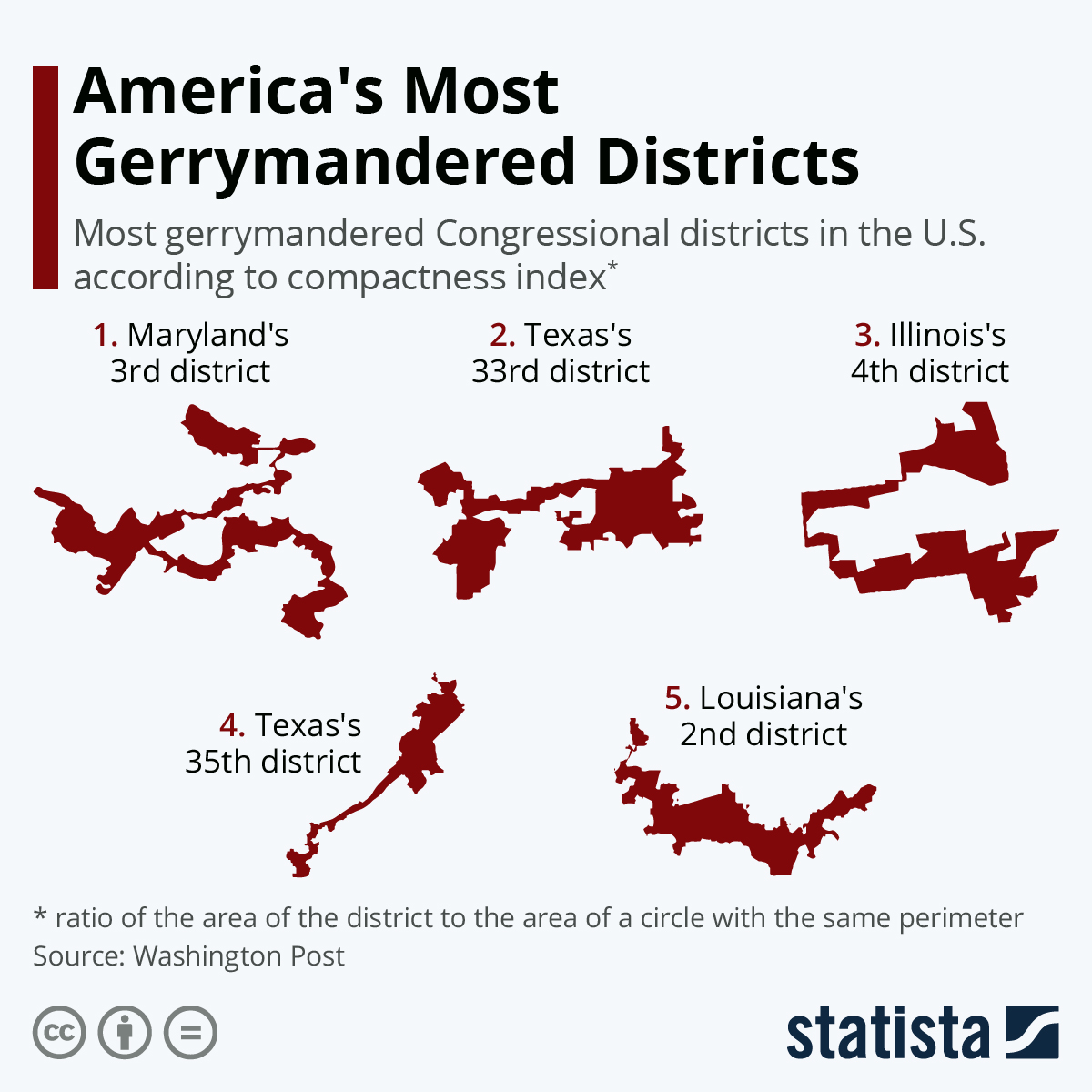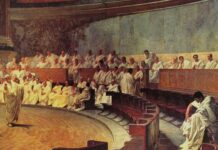
In the US state of Texas, there has been a major controversy brewing over the last few weeks over the Republican-led state legislature’s decision to redraw Texas’s congressional districts, at the behest of Donald Trump, ahead of the 2026 US midterm elections. Republicans are hoping to maintain their control of the United States Congress by gerrymandering the states’ electoral districts further in favour of Republicans to gain House seats that would otherwise be held by Democrats.
Donald Trump himself stated that he believes Republicans could pick up as many as 5 seats with the new gerrymandered map. The move by the Texas Republicans caused so much outrage among Democrats that their elected members fled the state to prevent the Texas state legislature from voting on the gerrymander bill. However, after around two weeks outside the state, Texas Democrats have since returned, and the Republican led legislature went ahead and passed the bill redrawing the Texas congressional maps to be more in favour of Republican lawmakers.
Gerrymandering is not an uncommon practice around the United States. Although Democrats have been sounding the alarm, stating that this move by the Texas Republican amounts to an undemocratic takeover of power, Democrats across the United States are just as guilty as Republicans of using Gerrymandering to their advantage. California Governor Gavin Newsom has threatened that in response to Texas redistricting, he is putting forward a bill that would gerrymander California’s congressional districts as well to counter the actions of the Texas Republicans.
However, once could easily argue California is just as guilty of the same kind of gerrymandering. Around one-quarter (25.22%) of Californians are registered Republicans, and around 38% of Californians voted for Donald Trump in the 2024 presidential election. From that, we can estimate that Republicans make up anywhere around one-quarter (25%) to nearly 40% of California’s population. However, among California’s 52 representatives in the House, only 9 (17%) are Republican. So, it is not as if California is this bastion of proportional representation, either.
California has this disproportionate representation despite the state supposedly having a non-partisan independent redistricting commission. California is not the only Democrat run state guilty of gerrymandering, either. Numerous Democrat-run states have been accused of hypocrisy for their gerrymandered maps as well. It has become a common practice in US many states. A few years back, statista.com published a chart showing some of the most gerrymandered districts across the US.
 You will find more infographics at Statista
You will find more infographics at StatistaHowever, even though Democrats may seem like hypocrites in their criticism of gerrymandering, that doesn’t mean that their point about it being anti-democratic is wrong. These policies serve to severely undermine the votes of millions of Americans. There is nothing democratic about the way in which these congressional districts are drawn, if they are made with the express purpose of ensuring that opposition parties are prevented from picking up seats.
However, the solution that many are suggesting to counter this is by putting in place non-partisan redistricting commissions to prevent gerrymandering, but that is not going to solve the fundamental problem, which is the first-past-the-post (FPTP) electoral system itself. When elections covering large swaths of people result in just one single winner, it is only natural that large portions of the electorate will not be represented. Meaning, if you are a Democrat in a Republican dominated district, your vote might as well not count at all because the odds of victory are nonexistent.
Even worse, the reason the US has become a two-party state in the first place is because of the first-past-the-post voting. The natural outcome of any electoral system that uses the FPTP is a two party system. The odds will always be drastically stacked against any third-parties that wish to challenge the two dominant political parties. More and more we are seeing Americans display their dissatisfaction with both the Democrats and Republicans, yet there is no third party that has been able to mount any kind of significant challenge against both sides for a long time.
It’s not just the United States. The same scenario plays out in many countries around the world that use the first-past-the-post system. The United Kingdom, the nation where the FPTP system originated, is a prime example of the entrenched two-party system that forms due to the FPTP system. Like the United States, the United Kingdom has been dominated by two parties, the Labour Party and the Conservative Party, for decades. Only recently, with the rise of Nigel Farage’s Reform Party, are we seeing a major challenge to the UK’s two-party system.
The UK’s electoral system also serves as a potent example of the disproportionate nature of the first-past-the-post system. In the 2024 general election, the Labour Party managed to win the majority of seats in parliament with only 33.7% of the vote, picking up a staggering 411 seats in the parliament. This was the lowest vote share of any majority party on record, making the 2024 election the least proportional general election in British history. Farage’s Reform Party were the biggest victims of this as they had won 14% of the vote but only managed to only pick up 5 seats.

When the results of an election can be so widely disproportionate to the number of votes cast in that election, it becomes difficult to really even refer to that system as a genuine democracy. When the votes of millions of people become essentially meaningless in elections that cannot not equate to democratic governance. In such scenarios, voters are typically just forced to pick between the better of two evils rather than voting for a party they may genuinely prefer, because the FPTP system makes it virtually impossible for third parties to have any real shot at winning.
During the colonial era, the British government spread the use of the FPTP system across the British Empire, and that system is still used in many countries around the world that had formerly been British colonies. In Africa, there are still numerous African countries that use the first-past-the-post system. And it isn’t a coincidence that in many of these countries (at least in the somewhat democratic nations) you have an electorate that is dominated by two major parties.
Nigeria is a perfect example of this exact scenario playing out. Nigerian politics has been dominated by two main parties for over two decades now. After the return to democracy in 1999, Nigeria had essentially been a one-party state led by the People’s Democratic Party (PDP). The vote among the opposition had been split among multiple parties that had been vying for power. However, in 2013 the biggest opposition parties joined forces to form the All Progressive Congress (APC) which would defeat the PDP in the 2015 election.
That 2015 election brought about the entrenched two-party system that has dominated Nigerian politics for around a decade. In the 2023 Presidential election, we would see a similar trend once again playing out. Despite the APC being very unpopular around many parts of the country, the party would manage to win the 2023 election as opposition voters had been split between Peter Obi and former Vice President Atiku Abubakar. As a result, Bola Tinubu would manage to win the election while only gaining around 37% of the vote.

Across Africa, many are losing faith more and more in the idea of democracy because of scenarios such as this. People get behind a candidate they wish to see that would bring reforms to fight corruption and better the lives of citizens, only to be met with the same entrenched leadership. The FPTP system does not leave any room for third party challengers, meaning corrupt African ruling parties can rarely be held accountable for their actions by voters (that is, in African countries that even hold actual elections in the first place).
Proportional representation ensures that there is more competition for votes among political parties because of the greater number of options available for voters. People can actually vote for parties that they prefer rather than voting for the lesser of two evils, which most are forced to do within a two-party system. The increased competition for votes will only be beneficial to the country because politicians would be incentivized to actually deliver for voters, otherwise risk being voted out.
Another advantage of proportional representation, all the different political ideologies that may exist within the electorate actually have a chance to pitch themselves to voters. For example, in the United States, you have so many political groupings that do not traditionally fall under the Republican or Democrat brand. Rather than being able to just break off and form their own parties, they are forced to run under the banner of the Democrats or Republicans in order to even have a chance at being elected.
Among Republicans, you have a number of different groups such as centrists, conservatives, libertarians, members of the far right, etc. Similarity on the democratic side, you have centrists, liberals, progressives, democratic socialists, leftist, etc. Ideally, most of these different factions should be part of separate political organisations; however, because of the two party system that exists, they all have to fit under the banner of one of the two main parties in the US. Resulting in no one group being completely satisfied with the state of their party.
Importantly, proportional representation can also help curb corruption. Since it often produces coalition governments made up of multiple parties, it creates a system of mutual oversight, where coalition partners and opposition parties alike are more likely to scrutinise government actions and hold one another accountable. As opposed to one ruling party, that would be less likely to call out corruption within its own ranks, thereby damaging its reputation among the electorate.
It is clear that proportional representation is the most democratic electoral system available. It better reflects the will of the electorate, fosters genuine competition among political parties, and creates the conditions for greater accountability and less corruption. By contrast, first-past-the-post is a relic of the British Empire, an outdated system that distorts representation and stifles democracy. If governments of democratic nations are serious about serving their citizens, they should embrace reforms that bring us closer to true democracy through proportional representation.











